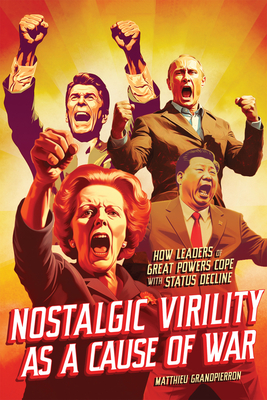Why do great powers go to war? Why are non-violent, diplomatic options not prioritized? Nostalgic Virility as a Cause of War argues that world leaders react to status decline by going to war, guided by a nostalgic, virile understanding of what it means to be powerful. This nostalgic virility - a system of subjective beliefs about power, bravery, strength, morality, and health - acts as a filter through which leaders articulate glorified interpretations of history and assess their power and their country's status on the international stage. In this rigorous study of France, the United Kingdom, and the United States, Matthieu Grandpierron tests the theory of nostalgic virility against the two more common theoretical frameworks of realism and the diversionary theory of war. Consulting thousands of newly declassified government documents at the highest levels of decision making, Grandpierron examines three specific cases - the early years of the Indochina War (1945-47), the British reconquest of the Falklands in 1982, and the US invasion of Grenada in 1983 - convincingly contending that status-seeking behaviour and nostalgic virility are more relevant in explaining why a leader chooses war and conflict over non-violent, diplomatic options than the dominant frameworks. Looking to the recent past, Nostalgic Virility as a Cause of War considers how this new model can be applied to current conflicts - from the Russian war in Ukraine to Chinese actions in the South China Sea - and provides surprising ways of thinking about the relationship between power, decision makers, and causes of war.










